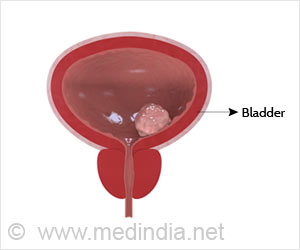Rhabdomyosarcoma (RMS) is a severe muscle cancer commonly affecting children. Embryonal rhabdomyosarcoma (ERMS) and alveolar rhabdomyosarcoma are the most common forms of RMS.
Rhabdomyosarcoma (RMS) is an aggressive muscle cancer that mostly affects children. The most common forms of RMS are embryonal rhabdomyosarcoma (ERMS) and alveolar rhabdomyosarcoma (ARMS).
Although ARMS is less common than ERMS, it is associated with a much higher rate of mortality. A therapy tailored to the ARMS form of RMS is therefore badly needed. A team of researchers, at the Hospital for Sick Children, Toronto, and Monash Institute of Medical Research, Australia, has now provided hope that it might be possible to develop such a therapy by showing that the protein ILK promotes the growth of ARMS cells, whereas it suppresses the growth of ERMS cells.The team, led by David Malkin and Gregory Hannigan, determined that the signaling protein JNK mediated these differing effects of ILK. Knocking down expression of ILK in ERMS cells induced activation of JNK and promoted tumor cell growth both in vitro and when the cells were transplanted into immunodeficient mice. Conversely, knocking down expression of ILK in ARMS cells abrogated both JNK signaling and tumor cell growth. Further analysis revealed that the protein product of the fusion gene that characterizes ARMS downregulated JNK1 expression, providing mechanistic insight into the opposing roles of ILK in ARMS and ERMS. The authors therefore suggest it should be possible to identify patients with ARMS who would benefit from an anticancer therapeutic that targets ILK.
In an accompanying commentary, Charles Keller and colleagues concur with the authors that targeting ILK might provide a therapeutic strategy tailored to the treatment of ARMS. However, they caution that further studies are needed, in part because of the high rate of misdiagnosis of ARMS versus ERMS.
Source-Eurekalert
SAV










